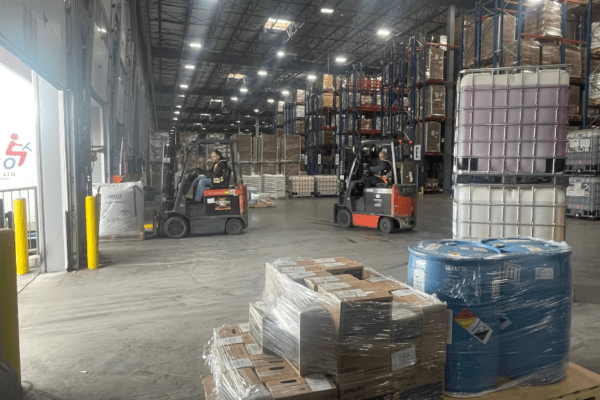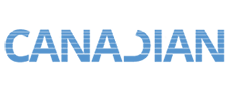
Questions about regulatory compliance? Our professional team is here to help.
Understanding Regulatory Authorities for Imports into British Columbia
For businesses looking to import goods into British Columbia, compliance with regulatory authorities is critical. Failing to meet requirements can result in delays, fines, or seizure of goods. Understanding the regulatory landscape ensures a smooth import process and prevents costly mistakes.
Regulatory cooperation between federal and local authorities plays a crucial role in maintaining compliance. This guide covers key regulatory authorities, their roles, and what importers need to know to remain compliant when entering Canada.
What Regulatory Authorities Oversee Imports into Canada?
Several government agencies regulate the importation of goods into Canada. Depending on the nature of the shipment, importers may need to comply with multiple authorities.
Canada Border Services Agency (CBSA)
CBSA is the primary authority governing imports. They ensure compliance with customs laws, collect duties and taxes, and enforce trade agreements.
Importers must:
- Obtain a Business Number (BN) from the Canada Revenue Agency (CRA) for import/export activities.
- Classify goods using the Harmonized System (HS) code.
- Submit an import declaration and required documentation.
- Pay applicable duties and taxes.
Transportation Safety Administration (TSA) and Transport Canada
For goods entering by air, compliance with the TSA and Transport Canada is essential. These agencies oversee aviation security and transportation safety.
Importers must:
- Ensure all shipments meet air cargo security requirements.
- Provide accurate declarations for hazardous materials (hazmats).
- Comply with transportation of dangerous goods (TDG) regulations.
Canada Food Inspection Agency (CFIA)
The CFIA regulates agricultural products, food, plants, and animals.
Importers must:
- Ensure goods meet Canadian food safety standards.
- Obtain necessary permits and certificates for restricted goods.
- Comply with packaging and labelling regulations.
Health Canada
Health Canada regulates pharmaceuticals, medical devices, and consumer goods with potential health risks.
Importers must:
- Comply with the Food and Drugs Act and Consumer Product Safety Act.
- Register controlled substances and health-related products.
- Ensure cosmetics and hazardous chemicals meet safety guidelines.
Environment and Climate Change Canada (ECCC)
ECCC oversees environmental regulations, including hazardous materials and controlled substances.
Importers must:
- Declare restricted substances like ozone-depleting chemicals.
- Ensure compliance with the Canadian Environmental Protection Act (CEPA).
- Adhere to waste disposal regulations for imported materials.
Provincial Regulations in British Columbia
Beyond federal regulations, businesses must comply with provincial rules in British Columbia.
- The BC Ministry of Environment enforces waste management laws, impacting certain imports.
- The BC Liquor and Cannabis Regulation Branch governs alcohol and cannabis imports.
- The Workers’ Compensation Board of BC (WorkSafeBC) regulates workplace safety for imported equipment and materials.
How Do Customs Regulations Impact Importers?
Duties and Tariffs
Canada applies import duties based on the HS classification of goods. Importers can reduce costs by leveraging trade agreements like:
- CUSMA (Canada-United States-Mexico Agreement) for duty-free trade within North America.
- CPTPP (Comprehensive and Progressive Agreement for Trans-Pacific Partnership) for tariff reductions with Pacific Rim countries.
- CETA (Comprehensive Economic and Trade Agreement) for imports from the European Union.
321 Shipments: How Does It Affect Your Business?
Section 321 allows duty-free imports valued under $800 CAD from the U.S. Businesses using this exemption must:
- Ensure each shipment meets the low-value threshold.
- Follow CBSA’s Courier Low-Value Shipment (CLVS) program guidelines.
- Avoid splitting shipments to circumvent duties, which is prohibited.
Compliance Requirements for Hazardous Materials (Hazmats)
Importing hazmats requires adherence to strict safety protocols. The key agencies involved are:
- Transport Canada (Transportation of Dangerous Goods Act)
- Health Canada (Controlled substances and hazardous chemicals)
- ECCC (Environmental protection laws)
What Are the Requirements for Importing Hazmats?
Importers handling hazmats must:
- Classify substances according to the UN Dangerous Goods List.
- Obtain necessary permits for restricted chemicals.
- Ensure packaging and labelling comply with the Workplace Hazardous Materials Information System (WHMIS).
- Provide safety data sheets (SDS) and emergency response plans.
Failure to meet hazmat regulations can result in penalties, shipment rejections, and liability risks.
How Can Importers Ensure Regulatory Compliance?
To navigate regulatory requirements effectively, importers should:
- Conduct a Compliance Audit
- Identify applicable regulations based on product type.
- Verify supplier documentation and certifications.
- Register with Authorities
- Obtain required permits and licences.
- Enroll in CBSA’s Partners in Protection (PIP) for streamlined customs clearance.
- Use Licensed Customs Brokers
- Brokers handle documentation, duty calculations, and regulatory compliance.
- They ensure goods clear customs without delays.
- Implement a Tracking and Documentation System
- Maintain accurate records of import transactions.
- Store safety and compliance certificates for audits.
- Stay Updated on Regulatory Changes
- Regulations frequently change; subscribe to CBSA and Transport Canada bulletins.
- Join industry associations for compliance updates.
What Are the Consequences of Non-Compliance?
Failing to adhere to regulatory requirements can lead to:
- Fines and Penalties – Non-compliance can result in substantial fines from CBSA, Transport Canada, or CFIA.
- Seizure of Goods – Improper declarations or safety violations may lead to confiscation.
- Legal Liability – Businesses importing restricted substances without proper authorization may face legal action.
- Supply Chain Disruptions – Delays due to regulatory issues can impact business operations and customer satisfaction.
Need Assistance with Regulatory Compliance? Contact Canadian Alliance Terminals
Looking for a Compliance-Focussed 3PL Partner? Let’s Connect!
Protecting your business from costly compliance mistakes is essential when entering Canada’s market. Importing goods into British Columbia requires expertise in regulatory compliance, customs procedures, and logistics management. Ensuring compliance with CBSA, TSA, CFIA, and other authorities is critical to avoiding delays and penalties.
Canadian Alliance Terminals can help. Whether you need guidance on customs regulations, hazmat handling, or supply chain management, our team ensures smooth and compliant import operations.
